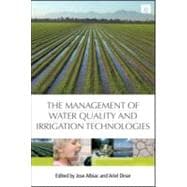
Note: Supplemental materials are not guaranteed with Rental or Used book purchases.
Purchase Benefits
What is included with this book?
| The Concept of Risk | |
| The Policy Implications of Differing Concepts of Risk | |
| A Philosophical Perspective on Risk | |
| Uncertain Times | |
| The Notion of ""Risk"" and the Development of Modernity | |
| Risk Perception | |
| Gender, Race, and Perceived Risk | |
| How Safe is Safe Enough? | |
| A Psychometric Study of Attitudes towards Technological Risks and Benefits | |
| Risk as Feelings | |
| Communication about Risk | |
| Accounting for the Social Context of Risk Communication | |
| Risk Communication and Management in | |
| Table of Contents provided by Publisher. All Rights Reserved. |
The New copy of this book will include any supplemental materials advertised. Please check the title of the book to determine if it should include any access cards, study guides, lab manuals, CDs, etc.
The Used, Rental and eBook copies of this book are not guaranteed to include any supplemental materials. Typically, only the book itself is included. This is true even if the title states it includes any access cards, study guides, lab manuals, CDs, etc.